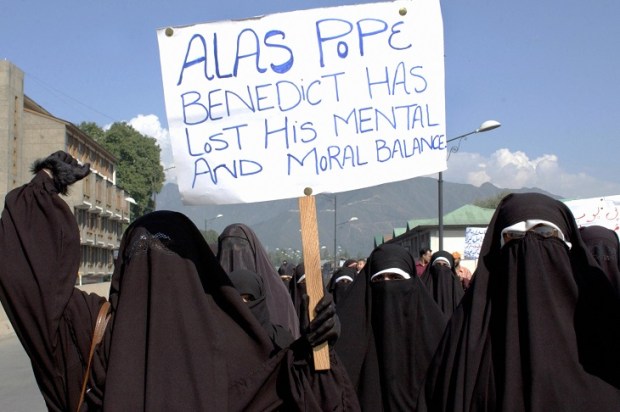The Hippocratic oath that all doctors swear imposes on them a duty to knowingly do no harm.
Recently I engaged in a discussion with an acquaintance about the treatment meted out to the infant Alfie Evans by the British National Health Service and the British legal system. I believe, without knowing, that the acquaintance is a doctor and a fine one at that. I was, however, chastised for being appalled at the deterministic view that was taken of young Alfie by both those services.
His parents sought the court’s assistance to enforce the infant’s human rights. The NHS — having prevented them from removing the child from its hospital to seek medical assistance overseas — proposed to remove the lad from his respirator and place him on palliative care.
The medical evidence as reported seems to have suggested that moving Alfie to another country (Italy was suggested) would injure Alfie rather than help him. Palliative care would permit Alfie to die without pain.
Alfie’s case asked the court to enforce his and his parents’ positive rights as they are declared in European and British Human Rights law. You will recall that the symbol for the courts of justice is a set of scales. But, when a court comes to determine a question of rights it is just a question of black letter law. There is no doctrine of equity to call upon that will moderate the legal effect of positive rights law, to moderate the law by the question of what a man of good conscience would do in such a case. In fact, the only moderation entertained by the law is what is expressed in the law’s symbol in the balancing this right against that right.
To avoid that conundrum the Victorian charter of non-binding rights declares that human rights are over-ruled by legislation. And if you don’t quite understand that, the fundamental human right to life in Section 9 has no effect on abortion or ‘child destruction’ in Section 48. But this is perfectly compatible with the focus on positive human rights in European jurisprudence and that jurisprudence now infects much of English and Australian law. It is German in origin, from the political theories of Immanuel Kant.
It is different from the United States whose laws purport to protect our natural rights. These are matters that are right or correct according to human nature. Being a rational standard above the positive law, knowledge of natural right permits us to judge whether a positive law is just or unjust, whether it accords with human nature. That was where the British common law of Blackstone was until Jeremy Bentham’s positivist reform.
The British court in Alfie’s case was obliged to reconcile Alfie’s and his parents’ positive rights with the positive rights of the doctors determining his treatment and the positive rights of the NHS regarding its hospital. That balancing required the court to place rights into a hierarchy; an impossible task without reference to human nature.
However, I suggest that the problem with the rights approach would not have arisen with a duties approach. The court should not have been asked to determine how Alfie’s rights conflicted with other rights and it would never have arisen had the law insisted on knowing what duties the medical profession and the NHS owed to Alfie. In that examination, the onus would have fallen on them (and the parents) to give evidence of how they intended to do no harm. The court could only then determine whether their duties pursuant to that oath were the duties of those of good conscience.
If the duties they were able to perform did not meet a standard that other recognised medical authorities could meet, the court could then decide in favour of the parents who could remove Alfie from the care of the NHS and into the care of the other authority.
Got something to add? Join the discussion and comment below.
Got something to add? Join the discussion and comment below.
Get 10 issues for just $10
Subscribe to The Spectator Australia today for the next 10 magazine issues, plus full online access, for just $10.


























Comments
Don't miss out
Join the conversation with other Spectator Australia readers. Subscribe to leave a comment.
SUBSCRIBEAlready a subscriber? Log in